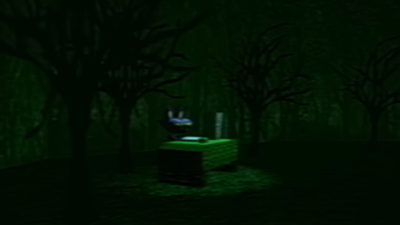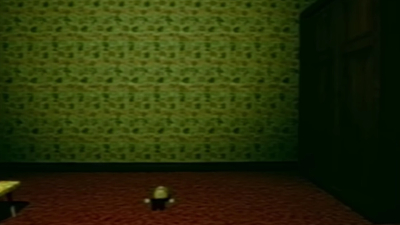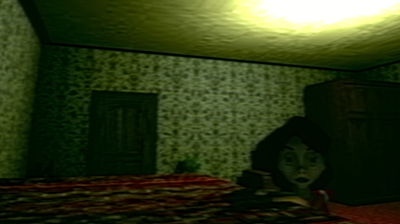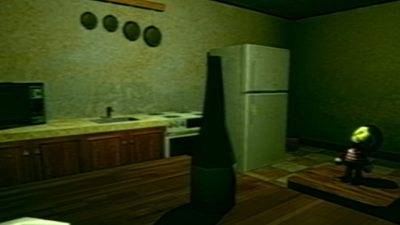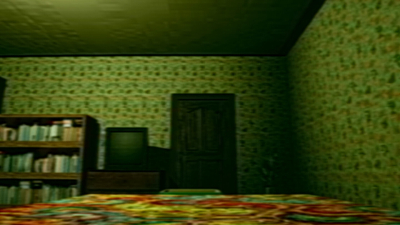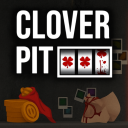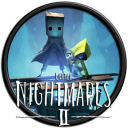Immersing in the Quirky Narrative
The narrative of Bad Parenting is a brilliant display of satire and offbeat storytelling. I appreciated how the developers injected humor into scenarios that are typically mundane, turning them into episodes that are both bizarre and oddly comforting. The storyline does not take itself too seriously, creating a playful space that allows for reflection on real-life stresses. As I guided my in-game persona through a variety of absurd challenges—from organizing chaotic family gatherings to managing unexpected mishaps at home—I realized that the humorous narrative is layered with insights into modern parenting cultures. For me, the game acted as a window into an exaggerated yet deeply relatable world where the absurd becomes a lens to view everyday realities.
Exploring the Game Mechanics and Challenges
The complexity of the game mechanics in Bad Parenting struck me as both invigorating and occasionally infuriating. The challenges range from simple tasks, such as preparing meals under time constraints, to multifaceted scenarios that require juggling multiple responsibilities simultaneously. In one instance, I was tasked with coordinating a family outing while also handling unexpected events at home, and the precise control scheme and tactical decision-making required was nothing short of engaging. It is in these moments of high tension that the game reveals its true character—a beautifully orchestrated chaos where the rules are more of a guideline than an absolute mandate. I found that each challenge pushed my reflexes, problem-solving skills, and my ability to adapt quickly to a constantly shifting environment, making the game an intricate dance of wit and strategy.
Injecting Humor and Satire into Every Corner
Humor is a cornerstone of the Bad Parenting experience, and I laughed more than I expected as the game unfolded. The developers have a remarkable knack for interweaving comedic elements with the trials of everyday life, using satire to underscore the often absurd expectations placed on parents. The humor is not force-fed; instead, it emerges naturally from the scenarios, dialogues, and even the subtle gestures of the characters. I found pride in recognizing moments where the absurdity of certain choices mirrored the irony of real-world parenting dilemmas. Whether I was navigating a chaotic morning routine or resolving unexpected mishaps, the sardonic commentary provided both relief and a deeper understanding of the often unspoken struggles of managing a family in today’s world.
Emotionally Charged Interactions and Reflections
What resonated with me most in Bad Parenting was its emotional depth hidden beneath layers of humor and absurdity. The game, while playful in its approach, does not shy away from exploring the emotional turmoil tied to the role we all play in nurturing the next generation. I found that my in-game decisions often came with an emotional weight, reflecting the internal conflict of balancing expectations with reality. There were moments when the game prompted me to consider the vulnerabilities of its characters, crafting an experience that, despite its comedic veneer, never lost sight of the inherent complexity of relationships. I experienced a mixture of amusement and introspection as I observed the consequences of my actions, making each interaction feel personal and laden with meaning.
Aesthetic and Audio Landscape: A Vibrant Symphony
The aesthetics of Bad Parenting are as playful and unexpected as the narrative itself. I was immediately drawn to the vibrant art style that combines cartoonish charm with a slightly surreal edge. Every visual element, from the quirky character designs to the eccentric environments, contributed to a world that feels both familiar and utterly unique. Accompanied by an eclectic audio landscape, the game harmonizes lighthearted tunes with whimsical sound effects that complement the on-screen chaos. I often found myself smiling at the sight of creatively exaggerated household scenarios, each accented by a soundtrack that encapsulates the mood perfectly. The deliberate choice of bright colors paired with unexpected compositional elements made the gaming experience a feast for the senses.
User Interface and the Joy of Accessibility
From a usability standpoint, I was pleasantly surprised by how intuitive the interface of Bad Parenting is. Despite the intricate systems and multifaceted tasks within the game, navigating through menus, options, and the in-game environment felt smooth and straightforward. I appreciated the careful design of the heads-up display (HUD), which provides essential information without overwhelming the player. Interactive elements are strategically placed for ease of access, ensuring that even during moments of rapid decision-making, I felt equipped to handle whatever chaos arose. The game seems to have been designed with both casual players and those who enjoy delving deeply into game mechanics in mind. This balance allowed me to concentrate on strategy and humor, rather than grappling with clunky controls or an overcomplicated layout.
Replaying Value and the Art of Experimentation
One of the most intriguing aspects of Bad Parenting is its high replay value. I found that each playthrough offered a different trajectory of choices and outcomes, making every session feel like a fresh exploration. The game’s branching narratives and adaptive scenarios invite experimentation, encouraging players to try out new strategies and witness the unpredictable consequences. I experienced a genuine sense of discovery every time I ventured down an alternate path, curious to see how minor decisions could lead to major shifts in the storyline. It is a true reflection of life’s unpredictability, where every action can change the fabric of reality in unexpected ways. The freedom to experiment, without being penalized too heavily for a wrong move, keeps the experience engaging and repeatedly satisfying.
Character and Story Development: A Tapestry of Personalities
Throughout my journey in Bad Parenting, I encountered a diverse cast of characters, each with their own quirks, backgrounds, and aspirations. I was particularly struck by the depth that the game attributed to even its secondary figures, providing them with moments of unexpected insight and humor. The interactions were crafted in such a way that each character's personality would shine through, making even the most outlandish scenarios feel rooted in authentic human emotion. I appreciated how the game evolved these characters over time, reflecting changes in their relationships and responsibilities. It was refreshing to see storytelling that moved beyond stereotypes, instead highlighting the complexity and unpredictability of familial dynamics in a setting that is as surreal as it is engaging.
Unique World Representation and Its Hidden Layers
Bad Parenting constructs a world that, while exaggerated, feels palpably rich and layered. I marveled at the way this alternate universe is at once a mirror and an exaggeration of our own. Each location, from the chaotic home environment to public spaces where societal expectations hang in the balance, is rendered with a delicate balance of humor and realism. I found that the world-building extended beyond mere graphics—it permeated the dialogue, the challenges, and even the smallest details, such as background interactions that hint at broader narratives. The creative choices made in art direction and environmental storytelling opened up a space for me to explore themes of identity, responsibility, and the inherent humor in everyday life. Every corner of this world felt carefully curated, inviting players like me to look beyond the surface and appreciate the intricate tapestry of design and ambition.
Innovative Approaches to Parenting Satire
What sets Bad Parenting apart is its unorthodox approach to satirizing the pitfalls and trials of raising a family. I found that the game does not rely on traditional tropes; instead, it creates a unique blend of chaos and order that speaks to the modern experience. The satire is subtle yet potent, often employing irony and self-deprecation rather than overt mockery. I was particularly taken by the way humor is used to both entertain and critique social expectations of what it means to be a parent. The playful manipulation of familiar scenarios, such as school runs, family dinners, and weekend outings, transformed every moment into a parody that was as engaging as it was thought-provoking. In navigating these examples, I felt a profound connection to the underlying message of the game: that despite the challenges, finding humor in one's mistakes can be a powerful source of strength.
Unexpected Nuances and Playful Easter Eggs
Among the many delights of playing Bad Parenting, I found the subtle details and hidden surprises to be particularly rewarding. The game is sprinkled with playful Easter eggs that range from nods to pop culture to clever in-jokes that only reveal themselves upon deeper exploration. I remember stumbling upon a series of hidden interactions that unlocked obscure achievements and quirky mini-games, each designed to reward curiosity and persistence. These easter eggs not only add an extra layer of fun but also serve as a testament to the developers' dedication to creating a vibrant and immersive experience. Throughout my gameplay, these unexpected moments of whimsy kept me engaged and excited, constantly alert to details that might otherwise go unnoticed by a casual observer.
Social Commentary Woven into Playful Critique
A distinctive characteristic of Bad Parenting is its ability to weave social commentary into its playful critique of modern life. I was intrigued by how the game managed to tackle serious issues—ranging from societal expectations and work-life balance to generational divides—while maintaining a humorous and light-hearted tone. The scenarios sometimes felt like a microcosm of the broader challenges facing contemporary families. As I navigated dilemmas that mirrored real-world conflicts and decisions, it became evident that the game serves as a subtle critique, challenging players to reflect on their own experiences and preconceived notions about success and failure in domestic life. This blend of satire with genuine social insight provided a reflective counterpoint to the relentless humor, adding a nuanced depth to every decision and interaction in the game.
Personal Reflections on In-Game Decisions
One of the aspects of Bad Parenting that resonated with me most was the personal nature of the decisions I was required to make. Every choice felt weighty and imbued with a sense of personal responsibility, even when the outcomes were hilariously unpredictable. I found myself second-guessing my decisions as I navigated through scenarios that demanded both quick wit and careful thought. There were moments when I experienced a mix of trepidation and excitement, knowing that each action contributed to a narrative that was uniquely mine. Through these choices, I discovered that the game is not just about surviving the chaos but about reflecting on my own values and priorities. The intimacy of this experience, where every seemingly trivial decision rippled into consequences that affected the course of the story, left an indelible mark on my overall enjoyment of the adventure.
Strategy and Tactful Storyline Exploration
Developing strategies to maneuver through the unpredictable narrative of Bad Parenting required a blend of tactical planning and on-the-fly ingenuity. I learned to anticipate potential outcomes and weigh the pros and cons of each course of action in a manner reminiscent of a strategic board game. The multifaceted challenges pushed me to think several moves ahead without sacrificing the spontaneity that makes the game so refreshing. In one particularly challenging segment, I found that a careful balance between assertive management of in-game resources and thoughtful interpersonal interactions was key to navigating the scenario successfully. I adapted my gameplay style, merging elements of conventional strategy with an instinctive responsiveness to unexpected developments. This dynamic confluence of planned tactics and improvisation elevated the experience, making every session a fresh challenge with scenarios that defied easy categorization.
Cultural Influences and Parent-Child Dynamics
While the game’s primary focus is on the trials of day-to-day parenting, I found that it also delves into the cultural context of familial relationships with a surprising level of sophistication. The interactions between characters often reflect broader themes of generational shifts and evolving societal norms. As I witnessed the interplay between traditional expectations and modern realities, I felt a deep appreciation for the nuanced portrayal of parent-child dynamics. The game cleverly embeds cultural parody into these interactions, making me laugh at the absurdity of stereotypes while also acknowledging the genuine challenges faced by families today. It is this balance between critique and empathy that makes the portrayal so robust. I was struck by how the game mirrored aspects of my own experiences, prompting me to question and, at times, even validate my approach to navigating the intricate relationship between duty and personal freedom.
Interactive Challenges and Gamified Humor
Bad Parenting thrives on turning everyday challenges into interactive puzzles that are both humorous and stimulating. I was captivated by the ingenuity of the mini-challenges that often required more than mere button mashing to complete. Each mini-game or task drew upon a creative reinterpretation of ordinary events, such as balancing work obligations with family commitments or managing unexpected disruptions during routine activities. These challenges are designed not only to test the player’s skills but also to evoke laughter and amusement at the sheer absurdity of the situations presented. I appreciated how the game managed to incorporate elements of gamified humor that encouraged experimentation and iterative learning. At several junctures, I paused to admire the craftsmanship behind these tasks, realizing that each puzzle was a cleverly disguised commentary on the inherent unpredictability of life as we know it.
Balancing Chaos and Order in a Virtual Family Life
Throughout my time with Bad Parenting, I was constantly juggling the delicate balance between chaos and order. Every decision felt like a dance between managing the uproarious unpredictability of a bustling household and the disciplined structure required to maintain functionality. I encountered scenarios where the household would spiral into delightful disarray, creating a vivid tableau of life’s imperfections. Yet, amidst all the chaos, there were moments of clarity and order that reminded me of the underlying structure that holds everything together. Playing the game felt like a tribute to the organized madness that defines the role of parenting—an experience that encapsulated both the joyous unpredictability and the necessary routines that sustain everyday life. This balancing act, achieved with remarkable finesse by the developers, kept me thoroughly invested in the virtual evolution of my character and his family.
Creative Controls and Adaptive Interaction
The control scheme in Bad Parenting is a testament to the developers’ ingenuity, designed to adapt dynamically to the unfolding narrative. I appreciated how the game provided a seamless interface that responded fluidly to my inputs, granting me confidence in executing even the most intricate maneuvers. Whether it was coordinating a hectic morning routine or managing a sudden, humorous crisis, the controls felt exceptionally intuitive and complementary to the gameplay’s fast-paced demands. I found that the adaptive interaction model allowed the game to introduce new layers of complexity as the story progressed, challenging me to integrate previously learned skills with fresh tactics. The versatility of the interface provided a significant boost to the overall immersion, enabling me to feel every twist and turn of the narrative as if I were orchestrating my own, uniquely unpredictable family saga.
